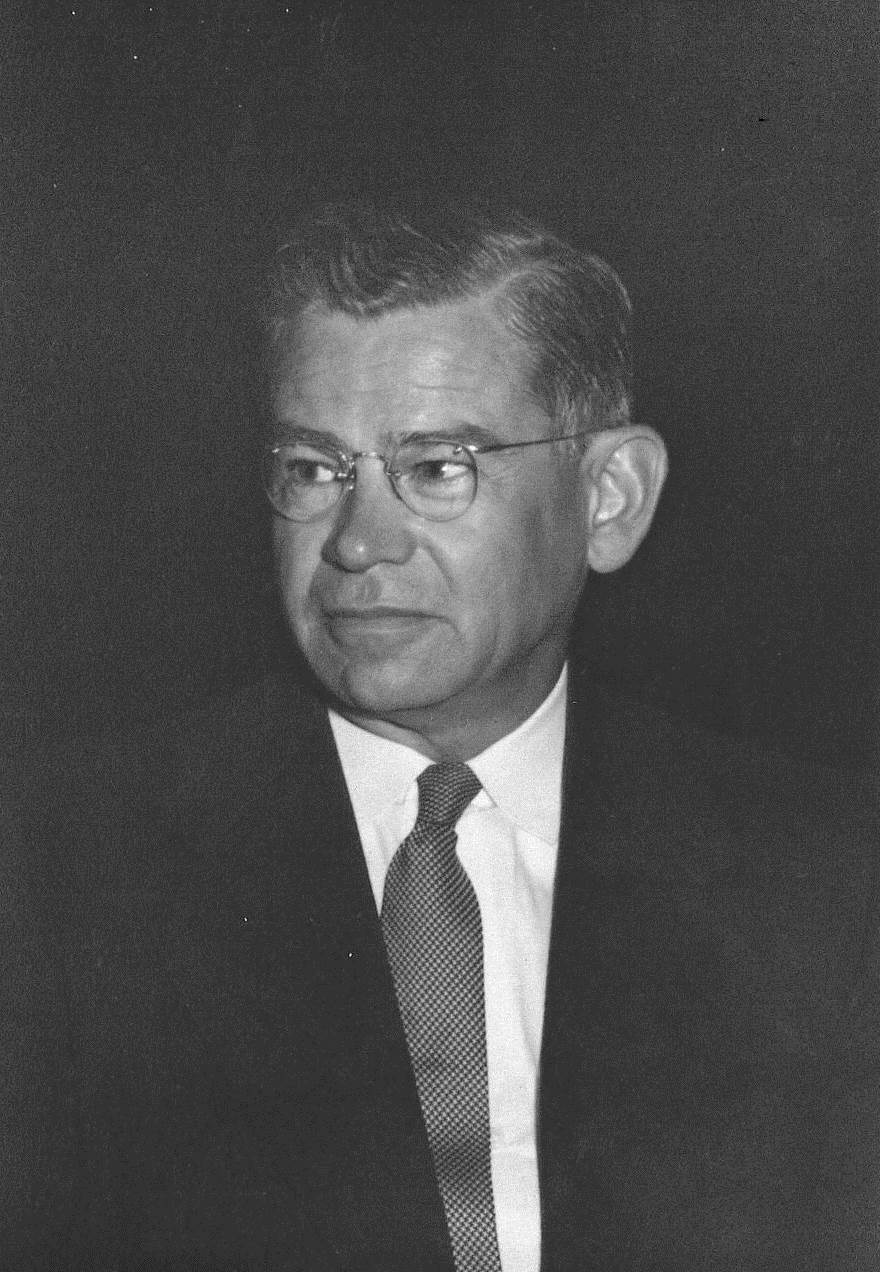Awards
- Honorary Degree - 1959
- LL.D.
- Doctor of Laws
- Medical Science Building Dedication
- Indianapolis, Indiana
- Presenter: Herman B Wells

Perry W. Lesh began his education at DePauw University in 1917. His time as a student was interrupted by World War I, and he enlisted as a member of Battery A, 150th Field Artillery, 42nd (Rainbow) Division. After attaining the rank of corporal, Lesh was discharged in 1919, and returned to the university to earn his degree in 1921. Lesh joined his father’s company, the C.P. Lesh Paper Company, and it soon became one of the largest paper dealers in the state. In the 1920’s, a Butler University professor asked the company to print sheets of pages with multicolored lines, and bind the pages together, creating exam books for their students. They kept the colors blue and white (Butler colors) and marketed the “blue books” to other universities across the company. By the 1980’s, the C.P. Lesh Paper Company was selling more than a million exam books a month. Lesh retired as president in 1960.
When Hugh McKennan Landon passed in 1947, Lesh became the second president of the James Whitcomb Riley Memorial Association (now the Riley Children’s Foundation), and grew the hospital in new directions, expanding a successful and ambitious course. During Lesh’s years of leadership, he led the 1949 Riley Centennial Fund for Medical Research campaign that raised $1 million for the Riley Research Wing and continued support for research into children’s diseases. In 1971, the hospital’s first comprehensive Newborn Intensive Care Unit opened and needed an ambulance specifically designed for transporting premature infants. Lesh ensured the Association provided the finances necessary to accomplish this.
Indiana University awards honorary degrees to individuals who have demonstrated excellence in scholarship or creative activity, in professional achievement, in public service, or an unequivocal commitment to Indiana University. Lesh received this exceptional award in 1959, in recognition and honor of his exemplary leadership of Riley Hospital, and immense contributions that significantly advanced the field of medicine.